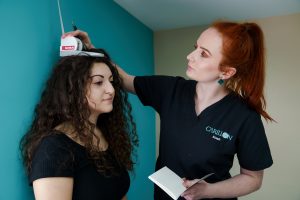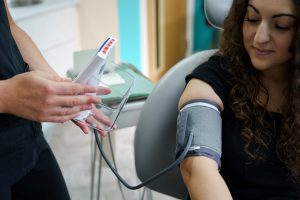Telephone: 01509 219 699
Email: info@carillondentalcare.com
Are you the type of person who would suffer endless toothache rather than getting it sorted by the dentist? If you have answered yes then you could consider sedation dentistry.
Dental anxiety causes around 25 per cent of the population to avoid visiting the dentist. These statistics cause us great concern. Poor dental health is linked to heart disease, bacterial lung infections, premature births, diabetes and strokes, meaning regular visits for dental health examinations and hygiene care are vital to maintaining good general health and dental wellbeing.
Please don’t neglect your dental wellbeing because of dental phobia – speak to us, we can help. We find that even with the most nervous of patients, all they need is time and kindness. Our appointments are calm, unhurried and welcoming and you will find our chairside manner is excellent. If you are anxious about your dental or hygiene appointments, please call us for a chat first. You are welcome to visit us, meet our team and have a look around before going anywhere near a dental chair.
Dental sedation is helpful if you:
Sedation in dentistry is used to provide a relaxing and anxiety-free experience for certain people receiving dental treatment. It enables individuals too afraid to go to the dentist to receive the dental care they need while avoiding the common apprehension known as dental phobia.
There are various steps you can take to make a dental visit easier for you. The most important one is to keep an open mind. However unlikely you think it is, we will do our best to help you and take good care of you.
It’s important that you bring a chaperone along with you to ensure that they are aware of the procedure and treatment plan.
Sedation has been around for many years and it is a very safe procedure that is used to carry out dental treatments. There are 2 types of sedation used in dentistry and at our practice:


Meet our dental sedation team, Dr Bellur and our two qualified dental nurses Stephanie and Emily. They will be with you throughout your treatment and will be there to ensure you are ok during the procedure.
It is a very safe procedure for most patients who are generally fit and well. We will carry out a full medical history and pretreatment assessment which will ensure right patient selection.
With inhalation sedation it reverses very quickly, whilst in the dental chair.
With intravenous sedation, it can take around 8-10 hours for it to wear off fully, we will keep you for 45 minutes to an hour after treatment is complete, to make sure you are safe to go home. Our treatment care coordinator will contact you the following day to see how you’re feeling.
A chaperone of your choice, must be present with you throughout your sedation journey.
It can vary depending on the type of sedation you have.
Inhalation sedation you may feel like you are floating, you may also feel slightly dizzy and overall relaxed.
Intravenous sedation, you will begin to feel lethargic and comfortable very quickly.
At the end of the treatment, you’ll have little or no recollection of your dental visit. This is why a chaperone is very important for your well-being and to get you home safely after treatment.